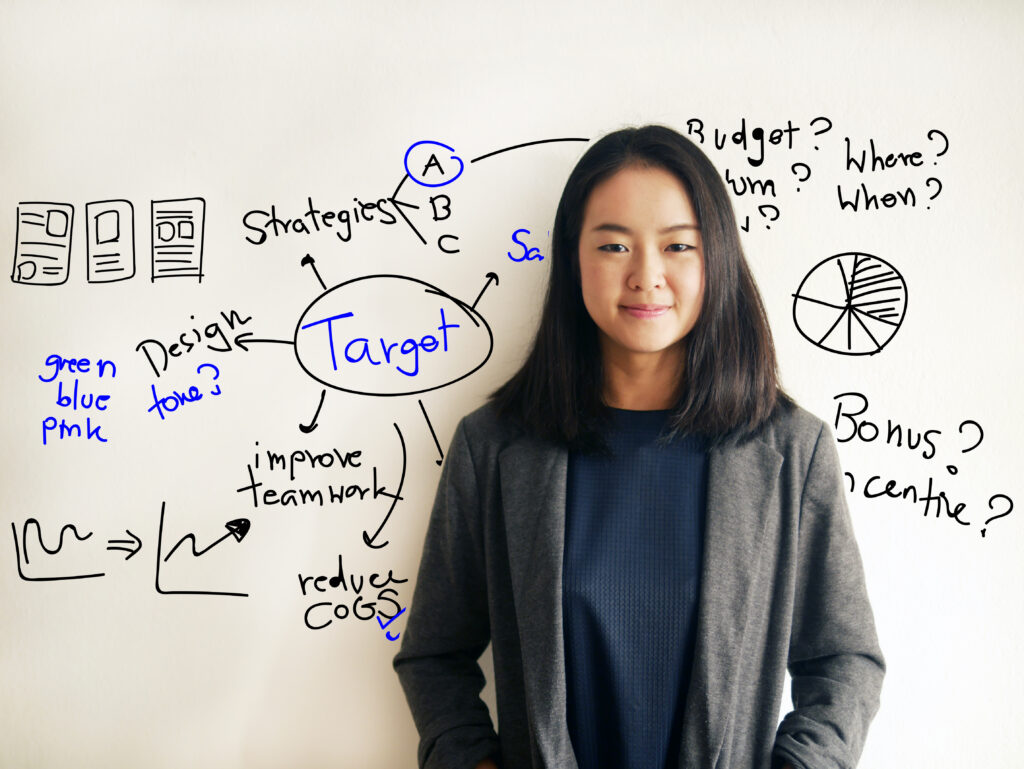InIn today’s world, one thing remains constant: change. Technology, the global economy, and societal developments are continually evolving, shaping our lives in ways we never imagined. As we navigate through this ever-changing landscape, it’s clear that traditional educational institutions—designed to equip us with knowledge early in life—no longer adequately prepare us for the demands of modern careers and personal growth. In this fast-paced world, lifelong learning for career flexibility has become essential, as once-relevant skills quickly become obsolete while new ones emerge.
For each person, adopting a constantly learning attitude has never been more vital. Whether it’s adjusting to changing professional environments, keeping up with the quick speed of technological breakthroughs, or just improving our cognitive skills, lifelong learning is the key to remain relevant and prospering. This article investigates why lifelong learning is crucial in the always shifting environment of today and how it might open fresh chances for both career and personal development.
1. How Lifelong Learning for Career Flexibility Helps You Manage Technological Advancements
Technology drives almost every change in every sector; it is no more only a tool. Whether we discuss artificial intelligence (AI), machine learning, blockchain, or data analytics, these developments are changing our way of life, business, and interaction with the surroundings. And the speed of technical advancement is astounding.
Many of us can find this quick development to be taxing. Keeping up with new tools and technology seems like a full-time job in of itself, as they appear to be developing daily. Still, this is where lifelong learning is most important. Investing time to keep ahead of the curve and guarantee that you’re not left behind by always learning about new technology and trends.
By means of lifelong learning, you prepare yourself with the tools required to welcome the most recent technology in your sector. Whether it’s upskilling with online courses, acquiring industry certifications, or keeping current with webinars and professional development programs, lifelong learning helps you to harness these technologies, therefore enhancing your working life. Those that keep current in a fast changing employment environment are more likely to remain competitive.
2. Building Resilience and Career Flexibility Through Lifelong Learning in a Changing Job Market
We are mostly past the age of a “job for life.” The fast changes taking place in the workplace imply that employment functions are redefining themselves and sectors long thought to be secure are either completely changing or even disappearing. People used to often spend their whole careers in one company or field in the past. The most successful professionals of today are those who can pivot, adjust, and reimagine themselves.
Here is where lifetime learning transforms things. Constantly learning new skills, broadening your knowledge, and keeping open to several career routes will help you build resilience that will resist changes in the business. Learners who pursue lifelong interests are not limited to one particular job or area. Rather, they can cross sectors, find fresh prospects, and flourish in a variety of work settings.
Moreover, a diverse skill set helps you to be adaptable in negotiating changes in your career. For instance, you will be able to adjust and reinterpret yourself in a rather different sector or job if your sector experiences downsizing or demand changes. Your job stability is improved and you remain relevant over your career by this ability to move easily.
3. Enhancement of Mental Agility and Cognitive Health with Lifelong Learning
Although most conversations on lifelong learning center on career development and skill gain, it’s vital to remember that ongoing education provides major cognitive advantages as well. Learning is about activating the brain, strengthening memory, and sharping critical thinking skills in addition to learning new knowledge.
Research indicates that lifelong learning can help lower our aging cognitive decline risk. Participating in cognitively demanding hobbies sharpens the mind and helps avoid stasis. Learning is a great tool for preserving mental health and agility whether your course of study is in a new language, working on a challenging project in your field, or picking a new hobby like painting or music.
Studies show that cognitive activities—like learning something new—cause fresh neural paths in the brain. As you get older, this continuous stimulation helps you preserve your cognitive skills, therefore enhancing not only memory and focus but also general emotional well-being.
4. Developing a Growth Mindset for Lifelong Learning and Career Flexibility
The idea of a growth mindset forms the core of lifetime learning. Developed by psychologist Carol Dweck, a growth mindset holds that our intelligence and skills are not fixed but rather changeable with work and commitment. Those with a growth mindset perspective sees chances for learning and development rather than hurdles as such.
This kind of thinking is more critical than ever in the always changing environment of today. Changing your perspective to one of growth can help you to welcome obstacles and see them as inevitable part of the learning process. Knowing that with time and effort you will improve, you will be more likely to volunteer to take on challenging projects or new responsibilities instead of running away from them.
By pushing us to always challenge ourselves and welcome fresh experiences, lifelong learning helps develop this growth attitude. Every time you pick up a new ability or piece of knowledge, you are demonstrating to yourself that even in maturity development is possible. Your confidence will also increase as you keep broadening your knowledge and will help you to meet any difficulties that develop in your personal or business life.
5. Lifelong Learning: Fueling Creativity and Innovation for Career Flexibility
Furthermore very important for promoting creativity and innovation is lifelong learning. New disciplines of study, varied ideas, and distinct points of view all help to generate creative breakthroughs and original issue solutions. The ability to apply information from one subject to another is growing in value as sectors get more linked.
Learning about design thinking, for instance, might enable someone to provide innovative ideas for the field of product creation. Likewise, a data science student might apply their knowledge to enhance supply chains in other sectors or improve healthcare results. Learning across fields helps lifelong learners to generate creative ideas that propel development and revolutionize sectors.
Among the main advantages of lifelong learning is this multidisciplinary approach. It inspires you to think creatively and opens fresh intellectual directions. Every new topic you investigate is adding even another instrument to your creative toolkit, which will help you to solve current problems.
6. Creating a Like-Minded Network Through Lifelong Learning for Career Flexibility
Learning is about creating relationships as much as about acquiring fresh abilities. Whether in actual classrooms, online seminars, or social media learning communities, lifelong learning sometimes pulls individuals together. These contacts present a good chance to grow your career and social circle.
Engaging people who have similar learning objectives lets you create fresh alliances, mentorships, and partnerships. These contacts can result in interesting job prospects, new initiatives, and viewpoints you might not have come across otherwise. In the framework of education, networking can also support your motivation as you will be surrounded by people who are also dedicated to ongoing development.
Learning communities also frequently offer priceless tools including access to industry experts, peer support, and chances for group project development. These contacts can help you remain current with the newest ideas and technologies and result in more exposure inside your field of work.
7. Increasing Personal Fulfillment and Confidence with Lifelong Learning for Career Flexibility
One of the most satisfying features of lifetime learning is the sensation of accomplishment that results from learning something fresh or honing a new ability. Whether it’s finishing an online course, getting a professional credential, or picking up a new pastime, these achievements can greatly boost your self-confidence and personal fulfillment.
Learning increases self-esteem by offering observable proof of development. Whether in your work, your interests, or your personal growth, knowing how far you have gone helps you to believe in your own talents. This confidence permeates all spheres of your life and enables you to confront obstacles with more will and hope.
Moreover, lifetime education provides a continuous feeling of personal development. Your sense of direction and fulfillment as you keep learning helps you to be happy generally. One of the best sources of delight and satisfaction in a world going faster than ever is the capacity to feel as though you are always changing and growing.
8. Maintaining Competency in a Globalized Economy with Lifelong Learning
Under a worldwide economy, there is intense rivalry. Businesses now fight corporations from all around the world, not only with other companies in their nearby marketplaces. Employers thus are seeking for people who show the capacity for learning, adaptation, and personal development.
Employers find lifelong learners—who keep ahead of the newest trends and refresh their skills—far more appealing than those who follow antiquated information and methods. By means of ongoing education, you are establishing yourself as a flexible and useful tool able to negotiate the complexity of the contemporary global economy.
In this competitive environment, lifelong learning is becoming a need rather than only a luxury. Maintaining competitiveness in your field depends on ongoing education, regardless of your goals: job stability, career promotion, or just keeping relevant.
Strategies for Lifelong Learning

Lifelong learning calls for intentional effort and a dedication to development; it is not something one does idly. Fortunately, your path of learning will be supported by a wealth of tools and possibilities. Following these doable actions can help you get going:
1. Explore Online Learning Platforms for Lifelong Learning and Career Flexibility
Websites include Coursera, Udemy, and edX provide a broad spectrum of courses across sectors for Explore Online Learning Platforms Many of these sites include certificates that might strengthen your resume and enable you to pick up useful abilities at your own speed.
2. Read Widely to Enhance Lifelong Learning and Career Flexibility
One of the most easily available and successful approaches of learning. Reading keeps you updated and introduces you to fresh ideas whether it’s books, research papers, trade journals, or blogs.
3. Join Professional Networks and Communities to Support Lifelong Learning and Career Flexibility
Networking among colleagues in your field lets you learn from peers, share ideas, and get opinions. Attach to industry conventions, webinars, sometimes known as online forums where you may network like-minded people.
4. Embrace New Hobbies and Activities to Fuel Lifelong Learning and Career Flexibility
Knowledge and abilities are best developed by constant practice. Make time often to concentrate on picking up fresh ideas, tools, or approaches. Practice strengthens whatever you have learned—from coding to design to learning a new language.
5. Stay Curious: The Key to Lifelong Learning and Career Flexibility
Lifelong learning is about keeping open to fresh experiences and curiosity rather than only professional growth. Nurturing your curiosity helps keep your mind sharp and active whether your interests are in learning about new technologies, discovering new pastimes, or visiting new locations.
A transforming instrument that provides people with the skills and information need to flourish in a world fast changing is lifelong learning. This kind of thinking helps us to be resilient, creative, and flexible, therefore allowing us to keep developing personally as well as professionally. Accepting lifelong learning is about enabling oneself to negotiate change, welcome difficulties, and lead a happy life—not only about picking up new abilities.
In a world when change is the only constant, lifelong learning is the secret to releasing your full potential and guaranteeing you are always ready for the next opportunity, no matter what it may be. Thus, welcome the path of study and seize today control over your destiny.














